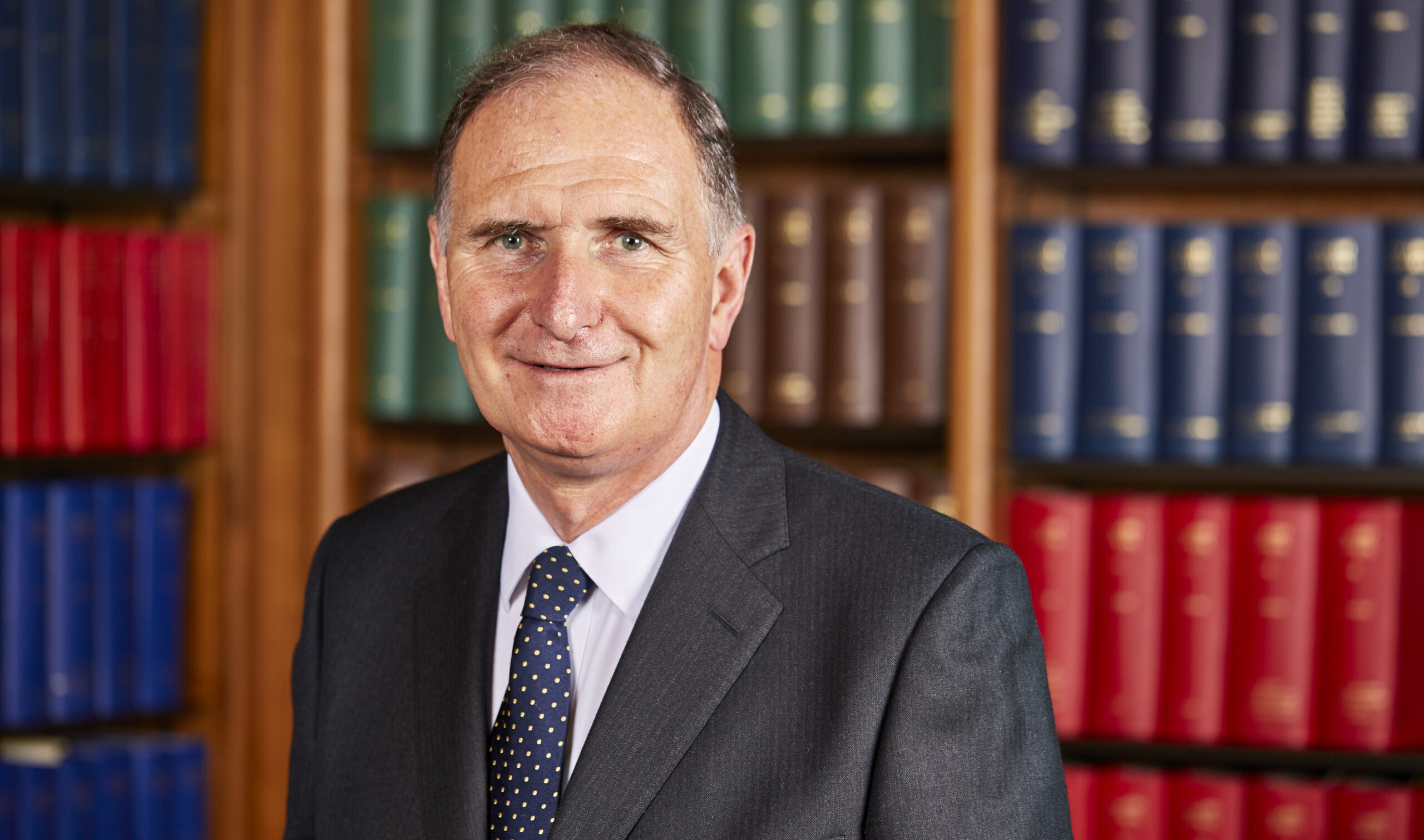Work to support the promotion of legal education and training and awareness in Welsh Law, and to support the economic development and sustainability of the legal sector in Wales is underway.
As the Law Council of Wales unveils its first two working groups to explore these subjects, our Editor, Emma Waddingham, speaks to the President of the Law Council of Wales (and former Justice of the Supreme Court), Lord Lloyd-Jones, to understand its work, what it hopes to achieve and how the sector can engage.
A forum for a resilient, relevant & accessible legal sector in Wales
Watch the full interview below or scroll to read.
Q: What is the role of the Law Council? What can it do and what does it hope to achieve?
Lord Lloyd-Jones: The original idea for a Law Council was closely tied to legal education and training. It was widely considered that /while there was no shortage of initiatives or activity in relation to the study and teaching of the new body of Welsh law,/ what was needed was a measure of co-ordination in order to avoid duplication of effort and to maximise the efficient use of resources. For this, there was a close model in Scotland in the Joint Standing Committee for Legal Education in Scotland.
It was therefore proposed to create a body which could co-ordinate the efforts of different bodies in promoting the study of Welsh Law.
The proposal was taken up by the Thomas Commission* on Justice in Wales which took a broad view of the role of the Law Council and recommended that:
“A Law Council of Wales should be established to promote the interests of legal education and the awareness of Welsh law, to ensure proper provision of teaching the law in Welsh, and to assist students in their education and training as future practitioners.”
The Welsh Government, in turn, was enthusiastic about the proposal. It took a yet broader view of the functions of the Law Council which is reflected in the statement of purpose which now appears in the Constitution of the Law Council.
The Council is described as ‘a forum for the legal sector to come together to deliberate and act on common issues affecting the legal sector in Wales’. While legal education and training remain a core focus, its purposes also include
- developing a collective approach to the economic development of the legal sector in Wales to promote the sector and facilitate its growth and sustainability
- promoting legal technology and innovation
- contributing to the process of improving the accessibility of the law in Wales and legal services
- identifying, and where possible responding to, any matters that may arise and that are of specific concern to the legal sector or the wider justice system in Wales.
Q: Are there any limitations / things to consider in terms of its role?
Lord Lloyd-Jones: In view of the broadening of the functions of the Council beyond legal education and training, the view has been taken by the Counsel General, by the Welsh Government and by those of us involved in the setting up of the Council, that the Council should be independent of Government. It is agreed that certain matters may be better discussed in the absence of representatives of the Government. However, we envisage that we will work in close collaboration with the Welsh Government. The initial meetings of the Executive Committee have been addressed by the Counsel General, by invitation, and this has already proved a valuable forum for discussion of recent developments.
In addition, it is important to be realistic about what can be achieved. The nature of the Council imposes limitations on its functioning and it is important that we should not raise expectations that cannot be fulfilled.
Firstly, the Council is made up of volunteers all of whom have demanding occupations.
Secondly, the Council has very limited resources. It has no staff of its own and is dependent on the Law Society for secretarial assistance.
Thirdly, the involvement of the judiciary – which we all see as fundamental to the success of the Council – necessarily imposes limitations. Great care will be needed to ensure that judges do not become involved in discussions which are to any degree politically controversial.
As a result of these limitations, there can be no question of the Law Council performing the function of a standing, policy think-tank in the field of legal affairs. Nevertheless, there is a great deal that the Council can achieve, and we believe that it will be able to make an important contribution.
Q: What is the Council currently exploring via the working groups?
Lord Lloyd-Jones: Two principal areas of activity have been identified – legal education and training and legal services. Reflecting these strands, it is proposed that the activity of the Council will be carried out by two working groups, tasked with projects agreed by the Executive Committee. They are the Education and Training Working Group chaired by Professor Emyr Lewis of Aberystwyth University, the Vice-President of the Council, and the Legal Services Working Group chaired by Dr Nerys Llewelyn-Jones.
The Education and Training Working Group has already been charged with two initial projects:
- Establishing a baseline for a [university] curriculum in Welsh law, a project which will be led by Alison Perry of Swansea University; and
- Initial scoping work on public education and understanding of Welsh law, a project which will be led by Huw Pritchard of Cardiff University.
The Legal Services Working Group is currently working on proposals for possible projects. It is likely that these will focus on priorities such as retention of legal talent in Wales and legal technology.
In addition, a third group has been set up to consider the viability of a national dispute resolution centre in Wales which might embrace mediation, conciliation and arbitration. This proposal comes from the Wales and Chester Circuit of the Bar and initial discussions are taking place with the Law Commission which has expressed an interest in the project.
So, it is early days and – as befits a group of lawyers – we are making a cautious start, but we do so enthusiastically and optimistically in the hope that we will be able to make a valuable contribution to the development of law in Wales.
Q: When is the next Executive Committee meeting and will minutes be published (and where)?
Lord Lloyd-Jones: The next meeting of the Executive Committee will be in July and we hope to move to a plenary meeting early in the Autumn.
Minutes of meetings will be published on the Council’s new website: lawcouncil.wales
More information
The Law Council of Wales has a new website: lawcouncil.wales
You can also connect and engage with the Council’s work via Twitter and on Linkedin.
_____
* The Thomas Commission took a broad view of the role of the Law Council. It its view, it should “be a voice for legal Wales by promoting awareness of Welsh law, ensuring the provision of legal resources through the medium of Welsh and helping Welsh law schools to provide their students with the necessary education and training to thrive in practice.” “ …[T]he Council should be an umbrella body that shares resources, supports training on Welsh law for the judiciary and the professions and ensures collaboration and cooperative working.” (Thomas Report, para 12.107)



